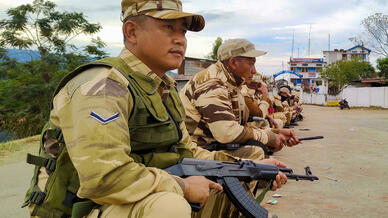The Indian government extended on Thursday a special law giving armed forces sweeping powers in the north-eastern state of Nagaland, days after a botched army ambush killed 14 people.
The killings sparked protests against the legislation, which provides the military vast authority to conduct raids, perform warrantless searches, and shoot fire without fear of being prosecuted.
However, India’s ministry of home affairs gave a six-month extension since the government considered the state was “in a disturbed and hazardous condition.” The administration justified the expansion of the Military Forces Special Powers Act by claiming that “the employment of armed forces in aid of the civil power is required” (AFSPA).
- India was in the driving seat despite Elgar’s resistance.
- Omicron Coronavirus Highlights: Kerala, Andhra Pradesh, Chandigarh report their first Omicron variant case; India tally at 38
Six miners heading home to their houses in the state’s Mon area, close the Myanmar border, were shot dead by the Indian army earlier this month, assuming them to be rebels. Another eight people were killed by the troops when they were confronted by an angry crowd. A soldier was killed and a military vehicle was set alight.
Those calling subsequently for a repeal of the AFSPA included the head of the state government, an ally of Prime Minister Narendra Modi’s ruling party.
“India is the biggest democratic country in the world. This is a draconian law. So it should be removed from our country,” Nagaland chief minister Neiphiu Rio told reporters after the killings. The Indian army said in a statement Wednesday that a court of inquiry set up to probe the incident was “proceeding expeditiously.”
Nagaland and other states in northeast India, linked to the rest of the country by a narrow land corridor, have seen decades of unrest among ethnic and separatist groups. While insurgent activity has declined in recent years, the AFSPA governs military deployments in the state.





